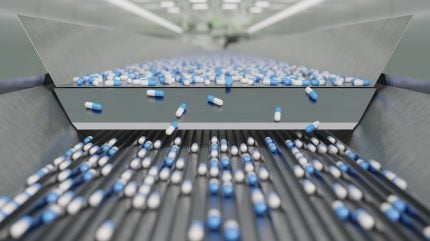
The US Food and Drug Administration (FDA) has launched a new scheme that will streamline the introduction of new pharmaceutical manufacturing facilities in the US, a strategy in line with US President Donald Trump’s ambition to reduce overreliance on imports.
The PreCheck programme, unveiled by the FDA on 7 August 2025, comprises a two-phase approach to facilitate new US drug manufacturing facilities.

Discover B2B Marketing That Performs
Combine business intelligence and editorial excellence to reach engaged professionals across 36 leading media platforms.
The first stage, called the Facility Readiness phase, will allow more frequent communication with the FDA to discuss facility design, construction, and pre-production. Companies will be encouraged to provide information on their proposed facilities, such as site operations layouts and quality control elements. The FDA says this should be done via Type V Drug Master File (DMF), a document that can be incorporated into drug applications to support approval.
The Application Submission phase, the second portion of the scheme, focuses on Chemistry, Manufacturing, and Controls.
The FDA stated the programme will “increase regulatory predictability and facilitating the construction of manufacturing sites in the US.”
The agency did not immediately respond to Pharmaceutical Technology when asked for more details.

US Tariffs are shifting - will you react or anticipate?
Don’t let policy changes catch you off guard. Stay proactive with real-time data and expert analysis.
By GlobalDataAmerica first strategy
Diderik Stadig, sector economist for TMT and Healthcare at ING, told Pharmaceutical Technology the new PreCheck programme looks “promising” on paper, offering a way to streamline US manufacturing and drug approvals.
“However, with the FDA facing budget cuts, its long-term impact remains to be seen,” said Stadig. “The press release also highlights a goal of reducing dependence on foreign drugs and APIs but achieving that will require a far more concerted effort, particularly in the area of generics.”
Apart from knock-on effects from tariffs, the PreCheck programme is the first FDA policy directed at bolstering US pharma manufacturing. Decreasing reliance on drugs manufactured overseas has been a key ambition of the Trump administration. In May, Trump also signed an executive order that will streamline the path for pharma companies to build new US drug manufacturing production sites and improve inspection times for US facilities.
Big pharma has been responding to Trump’s pressurised calls by outlaying significant funds to boost US manufacturing sites. Johnson & Johnson is set to invest $55bn over the next four years, including a $2bn biologics production site in North Carolina that promises to create 500 jobs. Roche outlaid a similar amount, planning $50bn worth of investment in the US, which will generate more than 1,000 jobs in new and expanded facilities.
A spokesperson for trade body Pharmaceutical Research and Manufacturers of America (PhRMA) told Pharmaceutical Technology: “In recent years, the number of manufacturing facilities in the U.S. has grown by more than 50%. Biopharmaceutical companies continue to build, expand and upgrade facilities across the country to supply the next generation of cutting-edge therapies to American patients.
PhRMA said the investments signal an “ongoing commitment to the US”.
More than half of pharmaceuticals distributed in the US are manufactured overseas. The country is particularly exposed in the active pharmaceutical ingredients (APIs) supply chain. Of the manufacturers that produce APIs used in FDA-approved products, only 11% are based in the US.
“Our gradual overreliance on foreign drug manufacturing has created national security risks,” shared FDA commissioner Marty Makary in a 7 August statement.
“The FDA PreCheck initiative is one of many steps FDA is taking that can help reverse America’s reliance on foreign drug manufacturing and ensure that Americans have a resilient, strong, and domestic drug supply.”
GlobalData Life Sciences research analyst Cyrus Fan commented: “The FDA PreCheck program is intended to encourage companies to onshore their manufacturing presence and increase US drug production. US president Donald Trump has warned of pharma specific tariffs arriving in the “next week or so” and has pushed for drug manufacturing to be onshored.”
Fan, however, added a caveat: “Though Trump intends to give a grace period, to allow set up of US drug manufacturing, before implementation of tariffs, setting up pharma manufacturing facilities can take years.”




